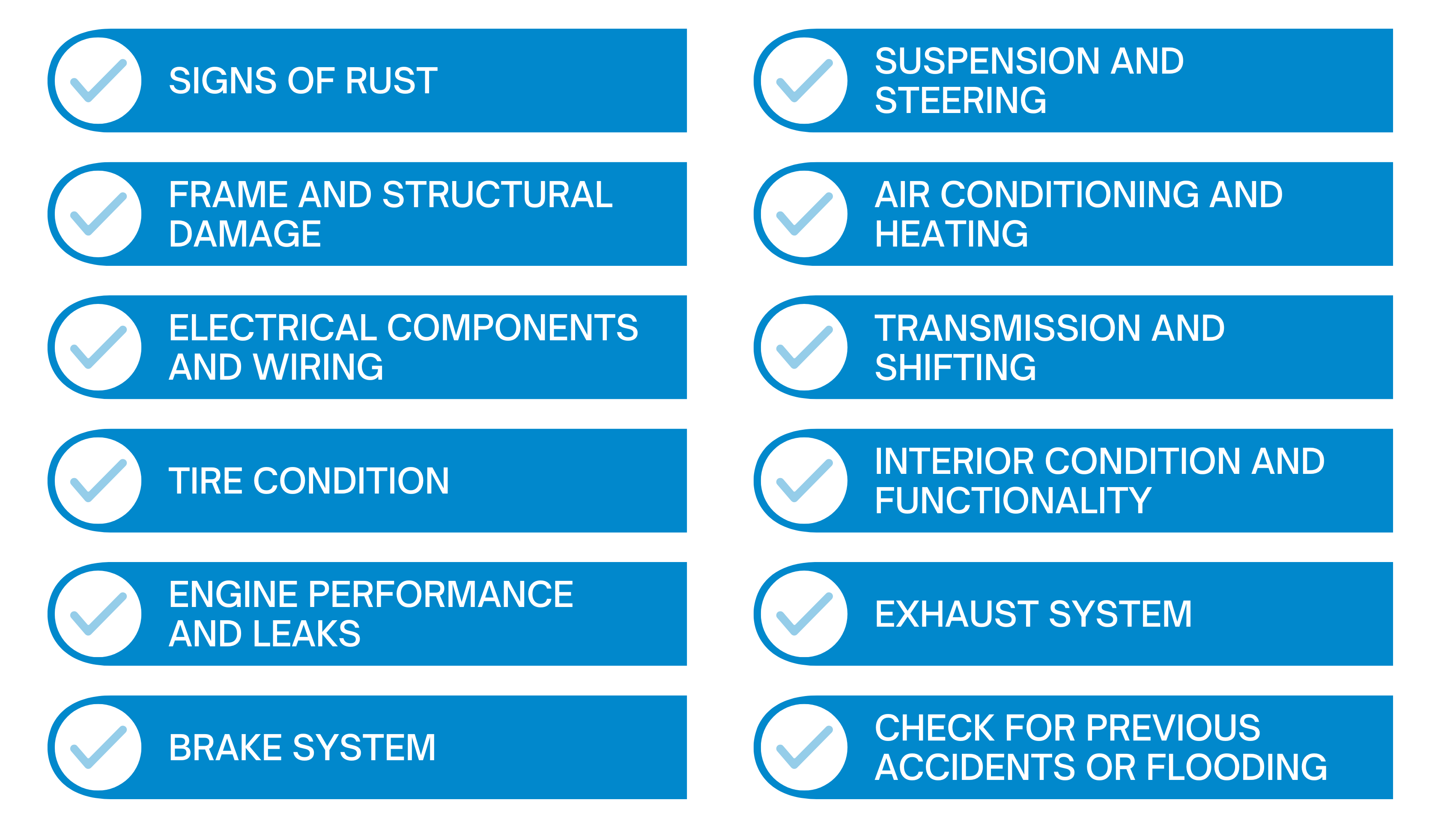
When buying Illinois used cars, the state’s tough winters can affect their endurance, their looks, and their overall condition. Snow, freezing temperatures, and road salt can cause extra damage to cars, especially in areas with long, cold winters. Buyers in Illinois should be extra careful when checking out used cars to make sure they’re getting a good deal. Ready to make an informed decision? Start your search for the perfect used car with Illinois license plate lookup!
Here’s why the weather matters when buying used cars in Illinois and what to look for when car shopping.
The Impact of Illinois Weather on Used Cars
Harsh Winters and Wear & Tear
Illinois winters are known for being harsh, with lots of snow, freezing temperatures, and icy roads. These tough conditions can affect a used car in several ways. The cold can cause problems with the battery, leaks, and even cracks in the engine block. It can also make rubber parts like belts and hoses become brittle, which means the car will need more maintenance.
Road Salt and Rust Damage
One of the most significant factors contributing to vehicle deterioration in Illinois is road salt. While salt is essential for keeping roads safe during winter, it harms vehicles, particularly the undercarriages. As salt builds up on the vehicle’s underbody, it can cause metal parts to rust and corrode over time. This rusting is often not immediately visible but can lead to structural damage, affecting the car’s safety and longevity.
For used car buyers in Illinois, it’s important to be extra diligent when inspecting a vehicle. Rust is particularly prevalent in older models, and it can spread to critical areas. This includes the frame, brake lines, and exhaust system, among others, leading to costly repairs. Additionally, salt exposure can cause other issues like brake component damage, which could compromise the vehicle’s safety.
What to Look for When Inspecting a Used Car in Illinois
When inspecting used cars in Illinois, beware of potential damage caused by the state’s weather conditions. Here’s a checklist of things to look for:

Signs of Rust
Inspect the vehicle thoroughly for signs of rust. Common areas that are susceptible to corrosion due to road salt exposure include:
- Undercarriage: Look at the underbody, including the frame, suspension, and exhaust system.
- Wheel Wells: Check for rust around the edges of the wheel wells.
- Door Frames: Open all doors and check the lower edges and frames for signs of rust.
- Hood and Trunk: Check the seams and edges for rust spots, especially where water and salt could accumulate.
- Floor Pans: Check the floor under the carpets for rust or holes, especially on the driver and passenger sides.
- Rockers and Sills: These areas can rust, especially in places with lots of snow or rain. Look along the bottom sides of the car.
- Fenders: Check the edges of front and rear fenders for paint bubbles or exposed metal, which could mean rust underneath.
- Grill and Bumper: Look for rust around the grill and bumper brackets, since moisture can get trapped there.
- Window Seals and Moldings: Check around the window frames and rubber seals for rust. This is especially true if seals are cracked or worn out.
- Lights and Reflectors: Look at where headlights, taillights, and reflectors are mounted for any rust.
Frame and Structural Damage
Rust can weaken a car’s structure. If the frame or undercarriage is rusty, the car may be unsafe to drive, and it could lose value.
Electrical Components and Wiring
Cold weather in Illinois can cause car electrical systems to fail. Check that lights, the battery, and other electrical parts are working well. Cold weather can also drain the battery, so make sure it’s in good shape.
Tire Condition
Check all four tires for even wear. Uneven wear could mean alignment or suspension problems. Also, check the tread depth and tire age. Even if the tires look fine, old tires may need replacing soon.
Engine Performance and Leaks
Start the engine and listen for unusual sounds like knocking or rattling, which could mean engine trouble. Check the engine for leaks, especially oil, coolant, or transmission fluid. Make sure the fluids are clean and at the right level. Leaks or rough engine performance could lead to expensive repairs.
Brake System
Test the brakes by driving slowly and listening for grinding or squeaking sounds. These noises could mean the brake pads or rotors are worn out. Check for fluid leaks around the brake lines or master cylinder.
Suspension and Steering
Check the suspension and steering for any damage. Look for worn-out shocks or struts. Make sure the steering feels smooth and responsive without vibrations or unusual play in the wheel.
Air Conditioning and Heating
In Illinois, both the heating and air conditioning need to work well in extreme temperatures. Test them in both hot and cold settings to make sure they’re functioning. If either system isn’t working well, there may be a bigger issue.
Transmission and Shifting
When driving, check how the car shifts gears. The car should change gears smoothly. If it jerks or hesitates, it could mean the transmission has problems, which may be costly to fix.
Interior Condition and Functionality
Look at the interior for any damage like worn seats, cracked dashboards, or broken electronics. Make sure windows, door locks, and other features like the radio and seat adjustments are working properly.
Exhaust System
Check the exhaust system for rust, leaks, or damage. This includes the muffler, pipes, and catalytic converter. A broken exhaust system can lower performance, increase emissions, and lead to expensive repairs.
Check for Previous Accidents or Flooding
Before buying, it’s important to know the car’s history. Harsh weather in the Midwest can lead to accidents or flooding. Use license plate search to confirm if the car has an accident history, flooded, or had other major problems.
Tip: Use the Illinois License Plate Lookup for free service to get a detailed history and avoid hidden problems.
Why License Plate Lookup Is Essential
In addition to checking a car’s physical condition, a license plate lookup helps you learn more about its history. This is especially important in Illinois, where cars can be damaged by extreme weather. A full vehicle history report can tell you about:
- Accidents: See if the car has been in any accidents that might affect its structure or parts.
- Flood Damage: Flooded cars can have a lot of damage inside and under the hood.
- Title Issues: Check if the car has a clean title or if it’s been marked as a salvage vehicle.
- Manufacturer Info: Learn about the car maker, their reputation, and any recalls or issues with the brand.
- Vehicle Specs: Find out key details like engine type, horsepower, fuel economy, weight, and size.
- Warranty: Check if the car is still under the original warranty or if an extended one is available.
- Insurance Claims: See if the car has a history of insurance claims, which could signal problems or costly repairs.
- Sales History: Find out how many owners the car had, how long they kept it, and the dates and locations of sales.
- Market Value: Look up the car’s current value based on its make, model, year, and condition. Determine if it is reasonably priced.
- Ownership Costs: Get an idea of the long-term costs, including maintenance, fuel, and insurance.
- Recalls and Issues: See if the car has recalls or has known issues that could affect safety or performance.
- Theft History: Check if the car has been reported stolen, which could affect its reliability.
- Insurance History: Find out if the car has had insurance claims, which might signal risks or problems.
- Liens: Check if there are any loans or legal claims against the car.
- Safety Ratings: Look up the car’s safety scores to see how it performs in NHTSA and IIHS crash tests and its overall safety features.
Using this tool helps avoid buying a damaged car that might be hard to spot during a regular inspection.
Make an Informed Decision Buying Illinois Cars
Buying Illinois used cars can be tricky because of the state’s tough winters, road salt, and changing temperatures. To avoid expensive repairs and make sure the car lasts, be sure to carefully check for rust. Look under the car, review its history, and find VIN with license plate lookup. This will help you make a smart choice and avoid problems caused by Illinois weather.